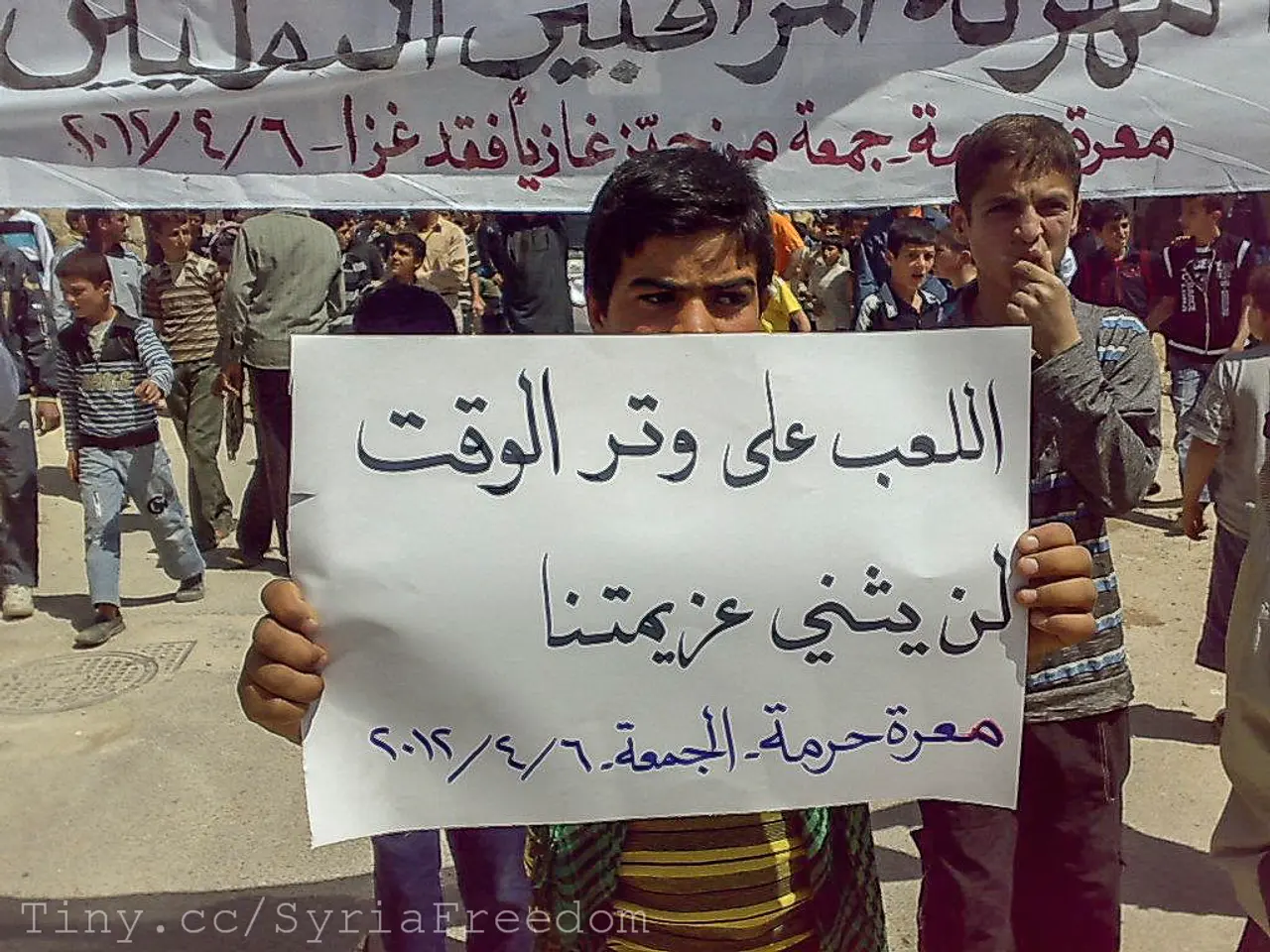Escalating violence in the realm of criminal activities perpetrated by both leftist and rightist factions. - Escalating Criminal Violence from Both Left and Right Factions
In recent times, Berlin and Germany as a whole have witnessed an alarming increase in politically motivated crimes. This trend, which began in 2024 and has continued into early 2025, involves both far-right and far-left extremist groups, with a significant number of antisemitic crimes predominantly linked to right-wing extremism.
The first three months of 2025 saw a total of 1,047 antisemitic criminal offenses reported in Germany. The majority of these are attributed to right-wing extremist groups, signifying a significant escalation in hate crimes and politically motivated violence, particularly in urban centers like Berlin.
Right-wing extremism continues to be marked by targeted attacks, such as stabbing and assassination attempts, motivated by xenophobia and nationalist ideology. Historical patterns of violence persist, with extremist groups continuing to target minorities and political opponents.
While less frequently quantified in recent headline violent incidents, left-wing extremist groups like the Revolutionäre Aktionszellen have historically been involved in bombing and sabotage, focusing on state institutions and capitalist symbols. Such groups contribute to the spectrum of politically motivated violence.
Berlin’s authorities have implemented controversial measures affecting political expression, including bans on certain slogans and symbols linked to pro-Palestinian activism. These restrictions aim to curb extremist influence but have raised debates about freedom of expression and potential overreach.
Authorities have actively prosecuted extremism-related offenses, including banning extremist publications and penalizing hate speech. These measures reflect attempts to balance civil liberties with the need to combat extremism amid heightened political tensions.
According to the unpublished response from the Interior Administration to a query by Green Party representative Ario Mirzaie, left-wing extremist incidents have also increased. The Berlin Police recorded 1,200 cases of politically motivated crimes with a far-right background in the first half of the year, a decrease of 24% compared to the same period last year. However, the number of violent acts by far-right individuals increased from 47 to 61 in the same period.
This complex environment is shaped by societal tensions, migration issues, and geopolitical conflicts impacting local activism and extremist mobilization. Germany’s 2024 reports and external human rights assessments highlight an overall challenging environment for freedom of expression, partly due to government actions to restrict far-right and far-left extremist propaganda. International critics have pointed to these developments as possible restrictions on free speech, while German officials reject censorship claims and emphasize maintaining democratic norms.
- The current state of affairs in Berlin and Germany, characterized by a surge in politically motivated crimes, requires a comprehensive review of both community policy and employment policy, to ensure a safer environment for all workers and citizens, particularly those who are at high risk due to their ethnicity or political beliefs.
- In light of the rise in politically motivated crimes, and the ongoing concern regarding extremist groups on both the right and left sides of the political spectrum, it seems prudent for general-news outlets to dedicate more coverage to crime-and-justice issues, aiming to inform the public and promote open discussions about the challenges the community faces.







